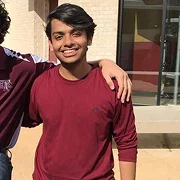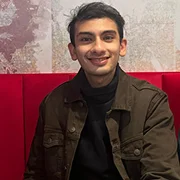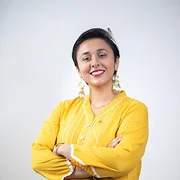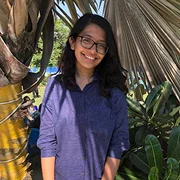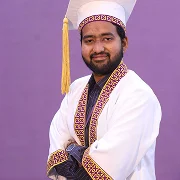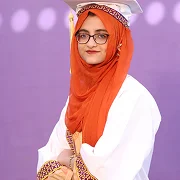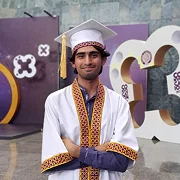Habib Liberal Core
Habib University is redefining undergraduate education in Pakistan and South Asia through a transformative liberal arts model that meets the complex challenges of the 21st century. At the center of this vision is the Habib Liberal Core—a bold reimagination of higher education grounded in postcolonial, universalist, and planetary perspectives. In a country where higher education often struggles with deep-rooted intellectual limitations, the Core empowers students to question inherited assumptions, engage critically across disciplines, and cultivate a sense of intellectual and civic responsibility. This rigorous, interdisciplinary curriculum equips graduates with the resilience and perspective to thoughtfully address both regional and global challenges.
Forms of Thought
The Seven Forms of Thought reflect the core cognitive abilities the Liberal Core curriculum seeks to cultivate, each one interconnected with one another and the wider curriculum, essential for developing reflective and engaged thinkers.
Language and Expression
(2 courses)
Philosophical Thought
(2 courses)
Historical and Social Thought
(2 courses)
Formal Reasoning
(1 course)
Quantitative Reasoning
(1 course)
Natural Scientific Method and Analysis
(1 course)
Creative Practice
(1 course)
Understanding Our Inheritance
The Habib Liberal Core adopts a postcolonial liberal arts framework that takes a reparative approach to education. Students are encouraged to explore the deep legacies of colonialism and their continuing effects, gaining the intellectual tools to critically analyze and understand the crisis-ridden world we inherit. The curriculum challenges dominant narratives and fosters intellectual regeneration, grounding students in their histories, cultures, and identities.
Reparative Vision
Learning to Heal and Transform
Habib University’s Liberal Core embodies a reparative vision of education, one that confronts the legacies of colonial trauma by reclaiming cultural identity and grounding learning in local context and history. With a commitment to equity, sustainability, and innovation, the curriculum supports interdisciplinary, student-centered learning that fosters empathy, critical self-reflection, and social responsibility. By guiding students through a journey of self-cultivation and transformation, the Habib Liberal Core empowers them to heal from inherited injustices and become thoughtful individuals. It supports students in shaping their personal and intellectual growth, contributing meaningfully to their communities, and reimagining a more inclusive world.

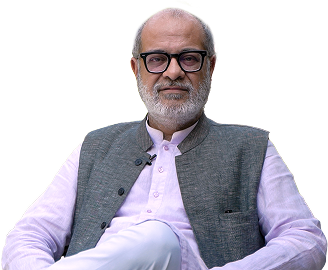
At Habib, we’re not just offering symbolic reparations—we’re thinking seriously about our modern experience, how we came to be where we are today.
Habib Liberal Core shapes well-rounded thinkers by requiring students to engage with each of the Seven Forms of Thought. Inspired by Stanford University’s Breadth Governance model and uniquely adapted to our postcolonial context, the curriculum ensures that every student develops a versatile and profound understanding of diverse disciplines. All students are required to take a determined minimum number of courses under each form of thought and action.
Academic
 and
Industry
and
Industry
 Recognition
Recognition
Habib University’s Liberal Core is internationally acclaimed for its interdisciplinary approach and commitment to epistemic reparation. Guided by leading academics, the University undertakes comprehensive curriculum reviews to uphold global academic and professional standards, offering students a transformative undergraduate education rooted in both local realities and global perspectives.
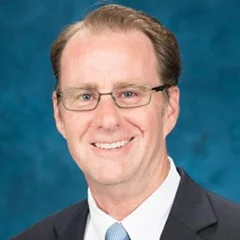
Bryan E. Penprase
(Vice President for Sponsored Research, Soka University of America)
“ Habib University is the recognition of how synergies between disciplines and epistemologies are liberating and powerful. Rather than adopting narrow specialization, which pushes hard in one direction while ignoring human consequences, this new kind of education accounts for human factors. Individuals creating and operating technology have their own sense of belonging, culture, and space, making them more effective in employing solutions that are good for their humanity and the people around them.”
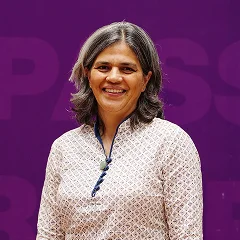
Dr. Farina Mir
(Associate Professor, University of Michigan)
“ Placing Jehan-e-Urdu into the Habib Liberal Core ensures every student graduates with a grounding in their own literary tradition, knowledgeable and appreciative of how rich and varied the Core is.”
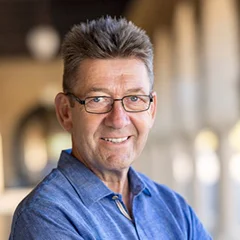
Dr. Thomas Hansen
(Reliance-Dhirubhai Ambani Professor of Anthropology and the Chair of the Department of Anthropology, Stanford University)
“The ‘liberal’ in liberal arts is about emancipation—setting people free through knowledge. To achieve this, they must first understand what they need to be set free from—knowing their own history, languages, and contexts. Even the biggest global questions cannot be confronted without a strong local grounding. Habib has made a bold move, offering a model of deep, meaningful learning with a global orientation.”
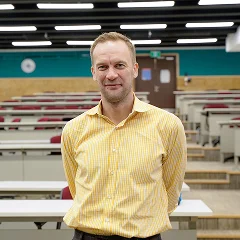
Dr. Alexander Key
(Director of the Humanities Core at Stanford University)
"Habib Liberal Core represents a vision for what undergraduate education can be in a particular place—it’s a vision of undergraduate education in Pakistan in the 21st century. That’s inspiring for educators like me who are reimagining an intellectual vision for undergraduate education in California. One can always learn from how others are imagining their undergraduate programming."
The strength of Habib University’s program and the excellence of its students have been widely recognized and applauded by industry leaders in Pakistan and worldwide. Employers value the graduates for their ability to think critically, lead with empathy, and engage globally with a strong sense of purpose. The Habib Liberal Core nurtures critical thinkers who are well-prepared to navigate the complexities of today’s workforce.
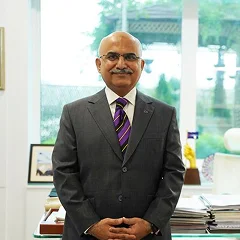
Umar Ahsan Khan
(CEO and Managing Director, Dawlance)
"Habib University students show an amazing ability to solve problems, collaborate across diverse stakeholders, and carry a strong sense of confidence. They step out of their comfort zones with ease, thanks to the Liberal Core and the focus on critical thinking. These elements expand their minds for creative problem-solving and innovative research. In my view, these are the most essential skills students need as they transition into the workplace."
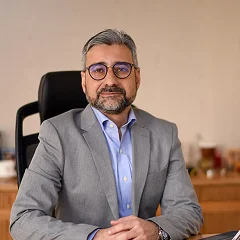
Amir Paracha
CEO Unilever
“ In today’s evolving world, Liberal Arts students, such as the ones coming from Habib University, will be a lot more valued compared to students trained only in technical skills as they bring a diverse skill set and mindset into the workforce.”
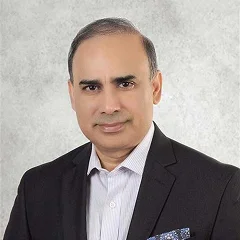
Tariq Khan
(President OPEN Global; Clinical Associate Professor of Marketing and Leadership, New York University)
“One of the biggest global challenges today is leadership, which requires a balance of science, execution, art, and strategy. We need critical thinkers, and the liberal arts create the thinkers and future leaders of any country. It is crucial that we invest in our future.”
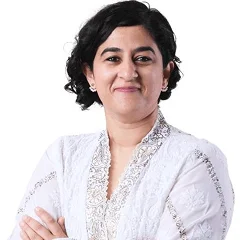
Tania Aidrus
Co-founder & CEO DGlobal
"In today’s evolving work culture, Habib graduates stand out for their intellectual curiosity, problem-solving mindset, and ability to navigate complexity with confidence. Their interdisciplinary education and emphasis on ethics and leadership equip them to thrive in dynamic professional environments"
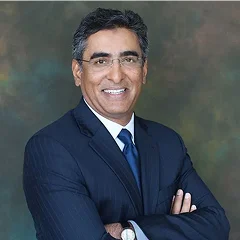
Rehan Shaikh
(Chief Executive Officer, Standard Chartered Bank)
"The best thing about Habib University is that it is not only educating students in one specific area, instead it is helping them become good students for the future and we, at Standard Chartered Bank, look at universities like Habib to hire their graduates."
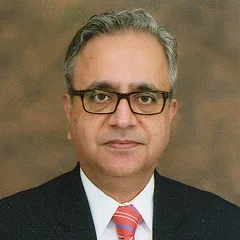
Aadil Saleh
(Head of Talent Acquisition, Human Resources, Habib Bank Limited (HBL) )
"A graduate with a liberal arts background has more to bring than just technical expertise. Their awareness of social issues, critical thinking skills, and exposure to a breadth of knowledge sets them apart. And we are eager to hire graduates who bring holistic perspectives to the company."
Excellence and Impact
Habib graduates go on to excel in leading global companies, pioneering entrepreneurial ventures, and making meaningful contributions to academia. Their stories reflect the interdisciplinary nature of our programs and the power of the Habib Liberal Core.
Postcolonial Higher Education Conference (PHEC)
Habib University's flagship Postcolonial Higher Education Conference (PHEC) is a globally distinctive platform
reimagining higher education through critical, postcolonial inquiry. Since 2013, it has convened leading thinkers to
explore themes of justice, decolonization, and spiritual renewal in education.
Further Reading: Perspectives on the Liberal Core
Curious about how students experience the Habib Liberal Core? Read their reflections on how this unique
curriculum has shaped their perspectives, enriched their learning, and shaped their academic journeys.
Get Assistance
Need help with the admissions process? Our team is here to guide you every step of the way.
Learn more about our interdisciplinary programs, generous scholarships, impactful research
opportunities, and global exchange programs for a transformative educational experience.
Frequently asked questions
What is the Habib Liberal Core?
The Habib Liberal Core is a set of ten required courses that all undergraduate students at Habib University complete across both the Dhanani School of Science and Engineering (DSSE) and the School of Arts, Humanities, and Social Sciences (AHSS). Structured around seven interdisciplinary Forms of Thought & Action, the Core helps students develop critical, creative, and ethical thinking across disciplines.
View course details: Habib Liberal Core Courses
Is the Habib Liberal Core compulsory for all students?
Yes, all undergraduate students are required to take a set number of courses under each Form of Thought and Action. This ensures they develop intellectual depth, versatility, and a broad, interdisciplinary perspective, regardless of their chosen major.
What are the seven Forms of Thought and Action in the Habib Liberal Core?
The Habib Liberal Core is structured around seven distinct Forms of Thought and Action, each represented by specific courses that equip students to engage critically with diverse perspectives.These forms provide a comprehensive framework for inquiry, reflection, and lifelong learning. They include:
- Historical Thought
- Social Thought
- Philosophical Thought
- Formal Reasoning
- Language and Expression
- Scientific Methods
- Quantitative Reasoning
How does the Liberal Core align with the Liberal Arts and Sciences model of education?
The Habib Liberal Core reflects the philosophy of a Liberal Arts and Sciences education by promoting interdisciplinary learning, critical inquiry, and intellectual flexibility. Through courses in South Asian history, philosophy, literature, logical reasoning, and scientific inquiry, students engage with diverse fields of knowledge and develop a broad, globally informed perspective.
How does studying the Habib Liberal Core benefit students?
The Liberal Core curriculum strengthens your ability to think critically, communicate effectively, and solve complex problems. By encouraging exploration beyond a single discipline, it fosters adaptability, broadens your worldview, and deepens your understanding of both global and regional issues, preparing you for success in any field.
What career advantages does the Habib Liberal Core provide compared to other universities?
The Core curriculum exposes liberal arts students to a wide range of disciplines and ways of thinking, giving them a competitive edge. This broad foundation helps them connect ideas across fields, approach problems creatively, and to navigate complex professional challenges with confidence.








